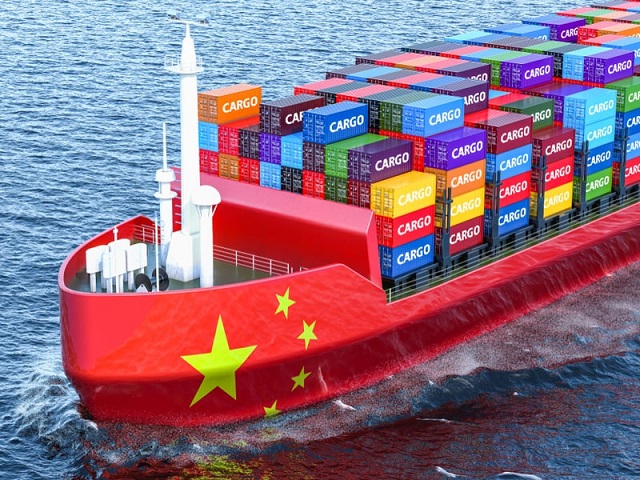
BUSINESS TIPS | Abbas Rouse | Going global has been every business owner’s dream since business conception. It has not only been a strategy to bring in more profits, but also an effort to serve an escalating decentralized customer base in different parts of the world.
However, being successful in other markets takes more than just availing your products in those markets. If you are to fuel global growth in a highly disruptive business era, you have to connect with the consumers.
One sure way to connect with customers in other markets is to speak their language. Only by deeply understanding their needs, and aligning your products or services in a way that meets their local values and needs can you be able to truly connect with them. Simply put, adopting a localization strategy can help you grow in leaps and bounds in the global business realm.
If you are looking to enhance global growth through localization, here is how to create a killer localization strategy. However, before that, let’s look at how localization fuels global growth.
How localization fuels growth
- It allows rapid market entrance
Entering new markets is without some hurdles, one of them being overcoming cultural differences. Localization helps align your products with the cultures in different markets. This means one hurdle down, enabling you to settle in the market and gain traction at a rapid rate.
- Brings in customers faster
Tailor making your products to culturally fit a market helps consumers relate to them effortlessly, and adapt to them much faster. They will be more inclined to spread the word about your products, which can see you build a huge customer base within no time.
- Increases sales
When it comes to making a purchase choice, being able to obtain information in one’s language tops the price for most consumers. This is because they feel heard and are able to understand a brand’s message. This as a result creates a bond and a sense of trust, consequently making it easy to part with their money.
- Allows a competitive advantage
As said earlier, customers tend to relate better with a company that they feel valued. By adapting your products, service, and customer experience to the ways of the people, you are positioning yourself to appeal to the customers. This gives you an advantage over other foreign businesses that haven’t localized their content. It also levels the ground to compete with local businesses.
Steps to create a localization strategy focused on global growth
Gaining the above benefits is not automatic. It depends on how you package your localization strategy. If you are to build a localization strategy that fuels global growth, proper planning is needed. Here are the key steps to take.
- Identify the market for you
Just as you would carry out research in your local market to determine how people view your products, it is equally necessary in testing foreign waters. You don’t want to waste your efforts in a region where your products have no market. Do thorough research to identify the markets that you have a chance to succeed.
- Form a team
You will need help in building a localization strategy, which is why the next step should be to set up a team. The team you put up should be knowledgeable in the culture of the region you are targeting, which makes working with local experts your best bet.
Of course, setting up a local team is overwhelming, and can take up precious time that you can channel to tasks that are more important. Save yourself the trouble by hiring through a reputable global PEO. If you’re expanding in China, for instance, hire a China company registration services to help you settle, and manage your teams. With HR, immigration, legal, and tax support are given, you are assured of setting up your business compliantly in this region.
- Understand the market
A successful localization strategy looks beyond just translating content into the local language. It seeks to align every aspect with the way of the people in a particular region. This includes taking into account the images, illustrations, colors, symbols, measuring units, packaging, currency, local time, and payment methods among others.
Get your team down in action to unearth all the nitty-gritty of the culture, beliefs, languages, social media platforms, and everything else that is relevant to the people. It is also good to understand how your name, logo, and slogans resonate with the people. It’s also worth mentioning that all of these local components are optimized for search engines. This will help you appear on local directories, will drive organic traffic to your website, enhance your online presence, and greatly increase your conversion rates. In other words, you also need to pay attention to your local SEO strategy, especially if you’re competing for local services.
- Implement
Apply the information that you have gathered on your business. Adapt your website to align with the locals. If you have to change the labeling and packaging, work on it. Open accounts on the preferred social media platforms in their language. In other words, repackage your business to fit your findings of the region.
Conclusion
A great product can help you find a global place in the world’s economy. However, only through localizing can you stay relevant in the global market. It doesn’t come easy though. Be prepared to put in the work, and to continually improve on the strategy.
******
 Abbas Rouse is a business development professional. He enjoys using what he has learned from seven years of studying business to help others achieve business growth through identifying new business opportunities – including new markets, growth areas, trends, customers, products, and services. He is a Senior content writer at New Horizons.
Abbas Rouse is a business development professional. He enjoys using what he has learned from seven years of studying business to help others achieve business growth through identifying new business opportunities – including new markets, growth areas, trends, customers, products, and services. He is a Senior content writer at New Horizons.
 The Independent Uganda: You get the Truth we Pay the Price
The Independent Uganda: You get the Truth we Pay the Price



